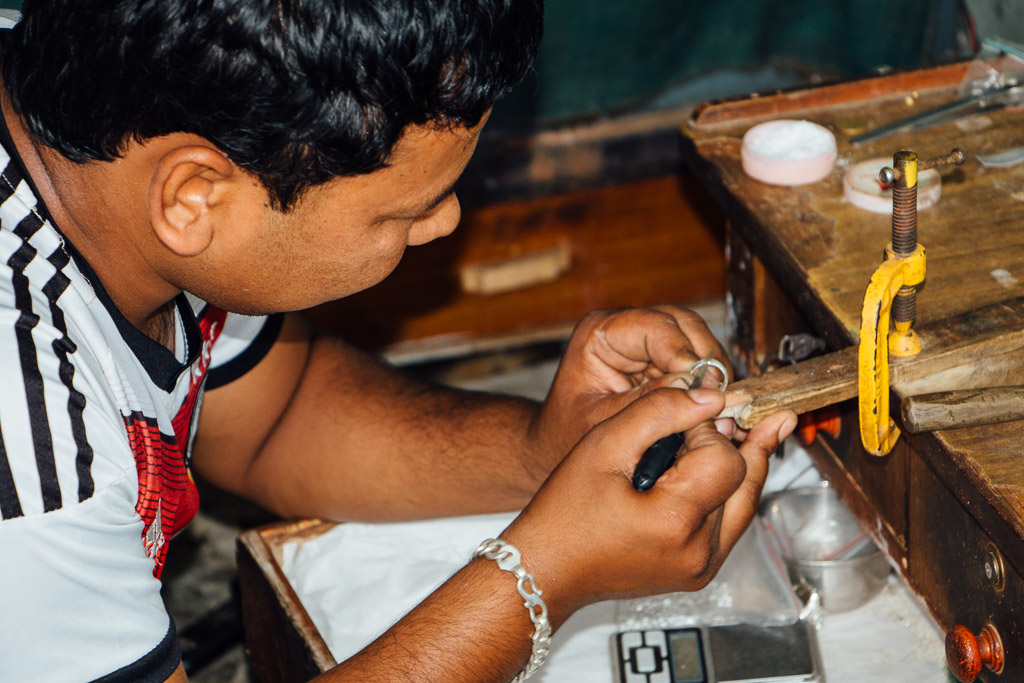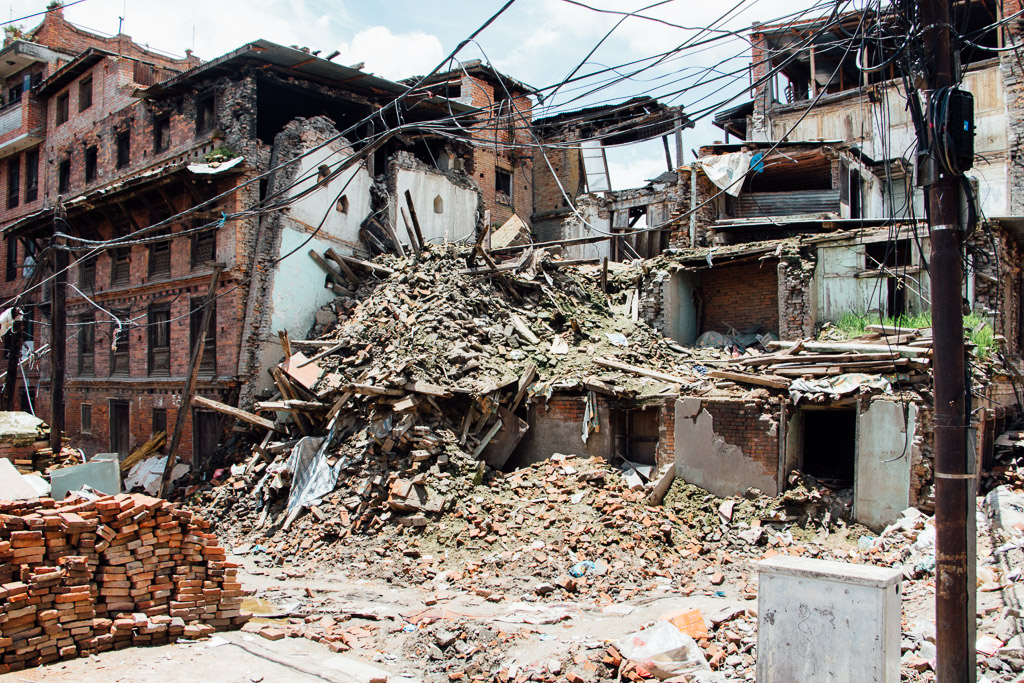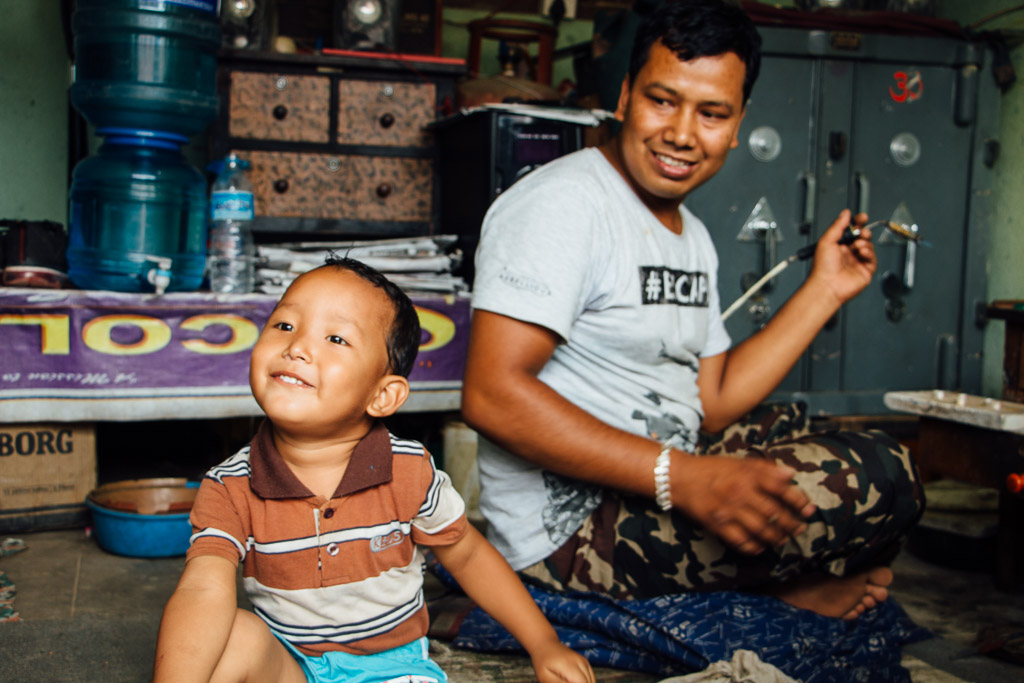The first artisan partner which we've ever worked with, Prem from the Bhaktapur region in Nepal, called me randomly on Facebook yesterday.
 Here is Prem pictured, making one of his first silver rings for Artisan & Fox.
Here is Prem pictured, making one of his first silver rings for Artisan & Fox.
I have many of our artisan partners on Facebook, and to many of our customers' surprise, many artisans do have social media - refugees, silversmiths, weavers alike - even if they come from a region that is considered rural or peri-urban.
My Nepali is really poor, and Prem's English is also almost non-existent. We didn't have a translator with us, and I mainly communicated via Google Translate. But I could tell that Prem wanted to share some great news.
 I was in Nepal in the summer of 2015 to help fundraise in the aftermath of the 2015 earthquake. I had a chance meeting with Prem in the ancient region of Bhaktapur, which was badly damaged on account of its historic nature.
I was in Nepal in the summer of 2015 to help fundraise in the aftermath of the 2015 earthquake. I had a chance meeting with Prem in the ancient region of Bhaktapur, which was badly damaged on account of its historic nature.
He had just upgraded his informal workspace into a larger shop, now complete with glass cabinets, velvet displays and shiny ceiling lights. It's a stark contrast to when we first met Prem two years ago, and when I formally revisited him again last year. Prem was able to expand his workshop through increased revenue from selling internationally, but he was also becoming more popular and selling more of his crafts in his local community.
Stories of growth like Prem’s is at the core of why we do what we do.
From the beginning, our theory of change is not to open ‘ethical’ factories, where we would centralize production and employ perhaps a dozen people in each country. This is commonly done by many ethical brands on the market, when they pat themselves on the back for paying 'fair' wages and creating jobs in relatively poorer countries.
But in these scenarios, value-added profits are often accrued out of these countries to where the original firm is incorporated. There is seldom profit-share, and the local handworkers were not empowered to learn to grow their businesses independently, but instead remain dependent on foreign-based entities for employment.
 Prem with his son in his workshop
Prem with his son in his workshop
Our aim at Artisan & Fox has always been to empower micro-enterprises like Prem for sustainable development. Handworkers and artisans alike - many artisans are entrepreneurial and with the right support, can grow and overcome existing barriers to sell internationally. For Prem, his aim was to grow his business, employ more locals in the community, and ensure a good education for his son.
That's where Artisan & Fox comes in, we see ourselves as enablers: to help eliminate barriers in figuring out international logistics, payments, transient style and trends - and work with artisans in creating products informed by centuries of traditional craftsmanship and contemporary style.
This way, when these local artisan businesses grow, their economy grows with them.
- Jaron, Founder & CEO

0 comments